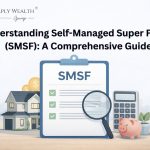Top 5 Costly Tax Deductions Mistakes and How to Fix Them
Tax season can be a stressful time, especially when it comes to understanding which deductions you are eligible to claim. The Australian Taxation Office (ATO) sets clear guidelines, but many people still make mistakes that can lead to expensive consequences, including audits, penalties, and delayed refunds. To help ensure that your tax return is accurate, compliant, and maximizes your eligible deductions.
Let’s dive into the five most common tax deductions mistakes and how to avoid them.
1. Overclaiming Work-Related Deductions
Explanation of Mistake:
One of the most frequent errors in tax returns is overclaiming work-related deductions. This happens when individuals claim expenses that are not directly tied to their employment or income generation. For example, you might claim the cost of a new suit, even though it’s only worn on the weekend or isn’t essential for your work.
Why It Matters:
The ATO strictly monitors work-related deductions, and overclaiming can lead to audits, resulting in penalties or fines. Overclaimed deductions often raise red flags for tax inspectors who might question the legitimacy of your expenses. If the ATO finds discrepancies, you may be required to pay back the overclaimed amount along with additional interest or penalties.
Fix:
To avoid overclaiming, ensure that every deduction you make is legitimate. Follow these steps:
- Only claim deductions for items that are directly related to your income generation, such as tools or work-related travel.
- Keep a clear and organized record of all receipts and documents.
- If you’re unsure about an expense, consult the ATO’s guidelines or seek professional advice from a registered tax agent.
- Be mindful of the “substantially and exclusively” test—expenses must be incurred solely for work purposes to be deductible.
2. Forgetting to Include All Sources of Income
Explanation of Mistake:
Many individuals fail to report all their income, especially from secondary or irregular sources. These might include freelance work, side gigs, rental property income, investment dividends, or even income from cryptocurrency trading. Ignoring or forgetting about these sources of income is a common mistake that can lead to serious consequences.
Why It Matters:
Failing to report all your income could trigger an audit, which could result in a larger tax bill, penalties, and interest charges. The ATO cross-references tax returns with other databases, and even small amounts of unreported income can be flagged.
Fix:
Ensure that all sources of income are included on your tax return, no matter how small. Here are some tips:
- Keep a comprehensive record of all income sources throughout the year.
- Cross-check your income statements, bank records, and financial documents to ensure no income is overlooked.
- Don’t forget about any income from investments or side businesses—everything must be reported.
3. Incorrectly Claiming Deductions for Home Office Expenses
Explanation of Mistake:
With more people working from home than ever before, home office deductions have become a hot topic. However, many taxpayers make the mistake of miscalculating their deductions. Hybrid working arrangements (combining office and remote work) can complicate things further, especially when it comes to claiming a portion of your rent, utilities, and internet costs.
Why It Matters:
Home office claims are under intense scrutiny by the ATO. If your claim is deemed excessive or incorrect, it could result in a denied deduction or even an audit. The ATO has specific guidelines on what is eligible for deduction, and it’s crucial to follow these rules.
Fix:
To correctly claim home office expenses:
- Use the ATO’s prescribed calculation methods—either the fixed-rate method or the actual cost method.
- Fixed-rate method: Claim a set rate per hour for your home office, including costs like electricity, phone, and internet.
- Actual cost method: Claim a percentage of actual expenses (e.g., rent, utilities) based on the proportion of space used for work.
- Keep accurate records of hours worked from home and keep all receipts for expenses related to your workspace.
- Only claim the portion of expenses that directly relate to your work.
4. Failing to Substantiate Claims with Proper Evidence
Explanation of Mistake:
A common mistake is failing to provide adequate documentation or evidence to support your claims. Many taxpayers underestimate the importance of keeping receipts, invoices, or other records that prove their expenses are legitimate and necessary.
Why It Matters:
The ATO requires substantial evidence to support every deduction claimed. Without proper documentation, your deductions could be rejected, leaving you with higher taxes to pay. In some cases, failing to provide evidence could trigger an audit or even penalties.
Fix:
To avoid issues with substantiation:
- Maintain a clear and organized record of all receipts, invoices, and other documents that support your claims.
- Use accounting software or apps to track your expenses in real-time, making it easier to keep all necessary records.
- Keep all records for at least five years, as this is the ATO’s requirement for substantiating claims.
- If an expense is particularly large or complex, consider seeking professional advice to ensure its properly documented.
5. Misinterpreting Professional Development Deductions
Explanation of Mistake:
Many taxpayers incorrectly claim expenses related to professional development courses, workshops, or seminars that aren’t directly related to their current job responsibilities. The ATO allows deductions for professional development, but only if the education is directly related to your current role.
Why It Matters:
Incorrectly claiming professional development costs for unrelated courses can lead to disallowed deductions and potential penalties. The ATO’s guidelines are very specific about what qualifies for tax deductions, and failure to follow these can cost you.
Fix:
To avoid errors with professional development deductions:
- Ensure that any courses or seminars you claim for deductions are directly related to your current job and its requirements.
- Keep detailed records of the courses, including course outlines, receipts, and certificates of completion.
- Consult the ATO guidelines to verify whether a particular course or seminar qualifies for a deduction.
- When in doubt, consult with a tax professional to ensure the course meets the necessary criteria for claiming.
Conclusion
Avoiding these common tax deductions mistakes can save you from audits, penalties, and unnecessary stress during tax season. Staying informed, maintaining accurate records, and understanding the rules set by the ATO will help ensure that your tax return is compliant and optimized for the best possible outcome. When in doubt, it’s always wise to seek advice from a registered tax professional who can provide personalized guidance.
For more detailed tax guidelines, visit the official Australian Taxation Office (ATO) website and ensure you’re always on the right side of tax law.
FAQs
Q1: What documentation should I keep for work-related deductions?
Answer: Keep receipts, invoices, and any relevant records that prove your expenses are directly related to your work. These records should be kept for at least five years to comply with ATO requirements.
Q2: How do I know if my home office expenses are eligible for deduction?
Answer: Refer to the ATO’s guidelines on home office deductions. The guidelines detail which expenses qualify, such as electricity, phone, and internet usage, and provide approved calculation methods, including the fixed rate or actual cost method.
Q3: What happens if I accidentally overclaim a deduction?
Answer: If you realize that you’ve overclaimed a deduction, you should amend your tax return as soon as possible. If the ATO discovers the mistake before you make the correction, you may face penalties or be subject to an audit.
Q4: Can I claim professional development courses that are unrelated to my current job?
Answer: No, the ATO only allows you to claim courses or training directly related to your current employment. Courses that are unrelated to your job do not qualify for a deduction.
Q5: Is it necessary to declare rental property income even if it’s minimal?
Answer: Yes, all rental income, no matter how small, must be declared on your tax return. Failure to include rental income can result in penalties, interest charges, and potential legal action from the ATO.
For those serious about maximizing returns, consulting with professionals is key to securing every eligible deduction, also look through 2024 fortnightly tax table for deeper understanding of tax education. Take control of your financial future today by visiting our website and exploring our tax insights. Check out our latest blog on Weekly Tax Table vs. Fortnightly Tax Table and our tax education blog for more valuable information!
Disclaimer: The information provided here is general in nature and should not be considered as professional tax advice. For specific tax guidance, please consult a qualified tax professional or visit the ATO website.








